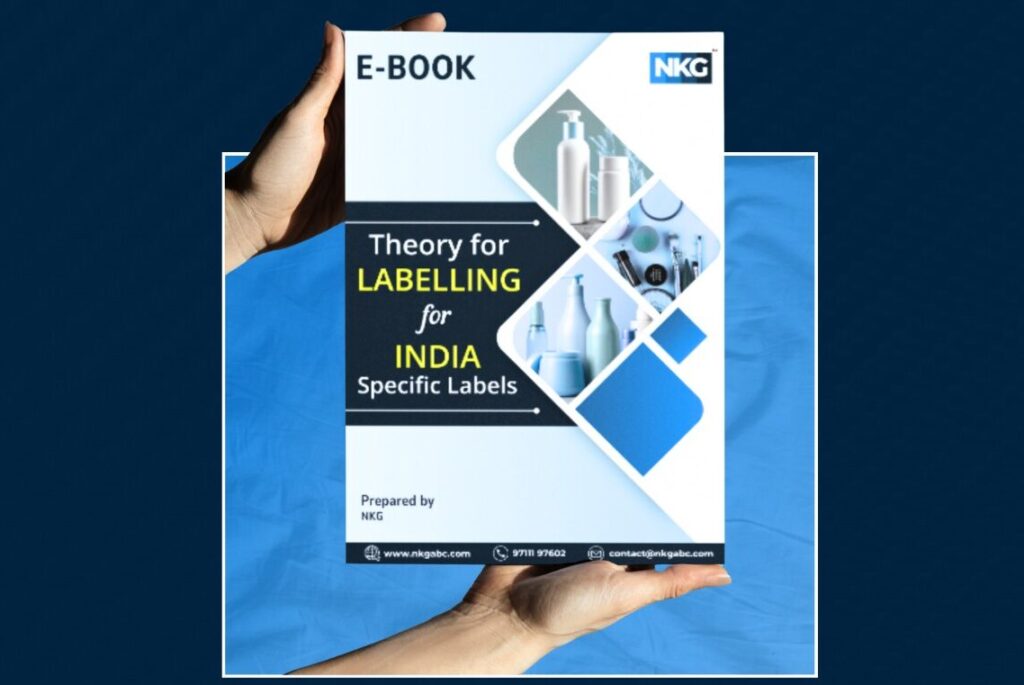Introduction:
Are you a footwear manufacturer or importer planning to sell your products in the Indian market? If yes, then you need to be aware of the latest regulations imposed by the Indian government regarding BIS certification for footwear. In a bid to ensure the safety and quality of footwear products available to consumers, the Department for Promotion of Industry and Internal Trade (DPIIT) has made it mandatory for all footwear manufacturers to obtain BIS certification and bear the Standard Mark (ISI Mark) on their products.
The new regulations, which came into effect recently, have been implemented to curb the import and production of substandard footwear in India. Failure to comply with these norms can result in severe consequences, including hefty fines and even imprisonment. Hence, it is crucial for both Indian and international footwear manufacturers to understand the intricacies of these regulations and ensure their products meet the required standards.
In this comprehensive blog, we’ll dive deep into the world of BIS certification for footwear, covering everything from the types of footwear covered under these regulations to the process of obtaining certification and the benefits it offers. So, let’s get started!
Understanding the Regulations:
The Bureau of Indian Standards (BIS) is India’s national standard body, which is responsible for establishing and enforcing standards for various products and services. BIS certification is a quality assurance mark that signifies a product’s compliance with the relevant Indian Standards.
According to the recent notification from the DPIIT, all footwear manufacturers are required to have BIS certification, and their products must comply with the applicable Indian Standard and bear the Standard Mark (ISI Mark) under a license from the Bureau. It would be illegal to sell footwear made of leather, rubber, polymeric materials, or any other materials without the ISI Mark.
The DPIIT has issued three quality control orders (QCOs) that cover different types of footwear, including:
- Footwear made from Leather and other materials (Quality Control) Order, 2020
- Footwear made from all-Rubber and all Polymeric material and its components (Quality Control) Order, 2020
- Personal Protective Equipment – Footwear (Quality Control) Order, 2020
These orders specify the Indian Standards that footwear products must comply with, ensuring they meet the required quality and safety standards. The Bureau of Indian Standards (BIS) is the certifying and enforcing authority for these orders.
Footwear made from All-Rubber and all Polymeric Materials (QCO 2024):
The Footwear Made from All-Rubber and All Polymeric Material and its Components (Quality Control) Order, 2024, which will come into force on August 1, 2024, makes it mandatory for the following rubber and polymeric footwear products to conform to the respective Indian Standards and bear the Standard Mark:
| Goods or articles | Indian Standard | Title of Indian Standard |
(1) | (2) | (3) | (4) |
1 | Industrial and protective rubber knee and ankle boots | IS 5557: 2004 | Industrial and protective rubber knee and ankle boots – Specification |
2 | All rubber gum boots and ankle boots | IS 5557 (Part 2): 2018 | All rubber gum boots and ankle boots: Part 2 occupational purposes |
3 | Moulded Rubber Outsoles | IS 5676: 1995 | Moulded Rubber Unit Outsoles — Specification |
4 | Microcellular Rubber Sheets for Outsoles | IS 6664: 1992 | Microcellular Rubber Sheets for Outsoles — Specification |
5 | Moulded PVC Outsoles | IS 6719: 1972 | Moulded PVC Unit Outsoles — Specification |
6 | Sandal and Slippers | IS 6721: 2023 | Sandal and Slippers- Specification |
7 | Hawai Chappal | IS 10702: 2023 | Hawai Chappal- Specification |
8 | Polyvinyl chloride (PVC) industrial boots | IS 12254: 2021 | Polyvinyl chloride (PVC) industrial boots – Specification |
9 | Polyurethane Outsoles | IS 13893: 1994 | Polyurethane Unit Outsoles — Specification |
10 | Unlined moulded rubber boots | IS 13995: 1995 | Unlined moulded rubber boots – Specification |
11 | Moulded plastics footwear- Lined or Unlined polyurethane boots for general industrial use | IS 16645: 2018 | Moulded plastics footwear- Lined or Unlined polyurethane boots for general industrial use- Specification |
12 | Footwear for men and women for municipal scavenging work | IS 16994: 2018 | Footwear for men and women for municipal scavenging work |
Note : For this Table, the latest version of Indian Standards, as amended from time to time, as notified by the Bureau of Indian Standards, shall apply.
The key points regarding the Footwear made from All-Rubber and all Polymeric Materials (Quality Control) Order, 2024 are:
- It will come into force from August 1, 2024.
- It makes it mandatory for certain rubber and polymeric footwear products listed in the table to conform to the corresponding Indian Standards and bear the Standard Mark under license from the Bureau of Indian Standards (BIS).
- The listed products include industrial/protective rubber boots, rubber/PVC/PU outsoles, sandals, slippers, footwear for municipal scavenging work, etc.
- Goods meant for export are exempted from this order.
- Micro and small manufacturing units as defined under the MSME Act are also exempted.
- Certain footwear sole components if imported specifically for manufacturing footwear meant for export are exempted, subject to furnishing a self-declaration certified by the Council for Leather Exports.
- Manufacturers can sell their existing stocks without BIS certification until June 30, 2025, if declared before commencement of this order.
- BIS will be the certifying and enforcing authority for implementation of this order.
In essence, it is a quality control order mandating BIS certification for various domestic rubber and polymeric footwear products to ensure conformity to the respective Indian Standards.
Types of Footwear Covered Under the BIS Certification Regulations:
The QCOs issued by the DPIIT cover a wide range of footwear products, including but not limited to:
- Leather footwear:
Sr. No. | Name of Footwear | Indian Standard | Title of Indian Standard |
1 | Leather safety boots and shoes | IS 1989 (Part 1): 1986 | Specification for leather safety boots and shoes Part 1 for miners Specification for leather safety boots and shoes Part 2 for heavy metal industries |
2 | Canvas Shoes Rubber Sole | IS 3735: 1996 | Canvas Shoes, Rubber Sole- Specification |
3 | Canvas Boots Rubber Sole | IS 3736: 1995 | Canvas Boots, Rubber Sole- Specification |
4 | Safety Rubber Canvas Boots for Miners | IS 3736: 1995 | Safety Rubber Canvas Boots for Miners- Specification |
5 | Leather safety footwear having direct moulded rubber sole | IS 11226: 1993 | Leather safety footwear having direct moulded rubber sole-Specification |
6 | Leather safety footwear with direct moulded polyvinyl chloride (PVC) sole | IS 14544: 1998 | Leather safety footwear with direct moulded polyvinyl chloride (PVC) sole – Specification |
7 | Sports footwear | IS 15844: 2010 | Sports Footwear- Specification |
8 | High ankle tactical boots with PU – Rubber sole | IS 17012: 2018 | High ankle tactical boots with PU – Rubber Sole – Specification |
9 | Antiriot shoes | IS 17037: 2018 | Antiriot shoes – Specification |
10 | Derby shoes | IS 17043: 2018 | Derby shoes – Specification |
- Rubber and polymeric material footwear:
Name of Footwear | Indian Standard | Title of Indian Standard |
Industrial and protective rubber knee and ankle boots | IS 5557: 2004 | Industrial and protective rubber knee and ankle boots – Specification |
All rubber gum boots and ankle boots | IS 5557 (Part 2): 2018 | All rubber gum boots and ankle boots: Part 2 occupational purposes |
Moulded solid rubber soles and heels | IS 5676: 1995 | Moulded solid rubber soles and heels- Specification |
Rubber microcellular sheets for soles and heels | IS 6664: 1992 | Rubber microcellular sheets for soles and heels- Specification |
Solid PVC soles and heels | IS 6664: 1992 | Rubber microcellular sheets for soles and heels- Specification |
Solid PVC soles and heels | IS 6719: 1972 | Specification for solid PVC soles and heels |
PVC sandal | IS 6721: 1972 | Specification for PVC sandal |
Rubber HawaiChappal | IS 10702: 1992 | Rubber HawaiChappal- Specification |
Slipper, rubber | IS 11544: 1986 | Specification for slipper, rubber |
Polyvinyl chloride (PVC)industrial boots | IS 12254: 2021 | Polyvinyl chloride (PVC)industrial boots – Specification |
Polyurethane sole, semirigid | IS 13893: 1994 | Polyurethane sole, semirigid- Specification |
Unlined moulded rubber boots | IS 13995: 1995 | Unlined moulded rubber boots – Specification |
Moulded plastic, footwear-Lined, Unlined Polyurethane, boots for general industrial use | IS 16645: 2018 | Moulded plastics footwear- Lined or Unlined polyurethane boots for general industrial use- Specification |
Footwear for men and women for municipal scavenging work | IS 16994: 2018 | Footwear for men and women for municipal scavenging work |
- Personal Protective Equipment (PPE) footwear:
Name of Footwear | Indian Standard | Title of Indian Standard |
Personal Protective Equipment – Footwear | IS 15298 (Part 2): 2016 | Personal protective equipment – Part 2 Safety Footwear |
The tables provided in the source data clearly outline the specific Indian Standards applicable to each type of footwear, along with the title of the standard. These standards cover various aspects, including design, materials, performance, and safety requirements, ensuring that the footwear products meet the necessary quality and safety criteria.
Step-by-Step Process and Documents required for BIS Certification for Footwear:
Your Step-by-Step Guide for BIS Registration Process (Foreign Manufacturer Under FMCS)- Download Now
Download our simplified step-by-step guide to understand, how can you get BIS Certification (Under FMCS) for Footwears and what are the documents required for that . Streamline your licensing journey and ensure compliance with ease.
Your Step-by-Step Guide for BIS Registration Process (Indian Manufacturer)- Download Now
Download our simplified step-by-step guide to understand, how can you get BIS Certification for Footwears (for Indian Manufacturers) and what are the documents required for that . Streamline your licensing journey and ensure compliance with ease.
Benefits of BIS Certification for Footwear :
Obtaining BIS certification for footwear offers numerous benefits to manufacturers and importers, including:
1. Compliance with Legal Requirements: BIS certification ensures compliance with the Indian government’s regulations, protecting manufacturers from legal consequences and penalties.
2. Enhanced Product Quality and Safety: The rigorous testing and inspection processes involved in BIS certification guarantee that the footwear products meet the highest quality and safety standards, ensuring consumer confidence and trust.
3. Competitive Advantage: Products bearing the Standard Mark (ISI Mark) have a competitive edge in the Indian market, as consumers perceive them as trustworthy and reliable.
4. Access to the Indian Market: BIS certification is a prerequisite for selling footwear products in the Indian market, opening up opportunities for manufacturers and importers to tap into this vast and growing market.
5. Improved Brand Reputation: Obtaining BIS certification demonstrates a manufacturer’s commitment to quality and safety, enhancing their brand reputation and credibility in the eyes of consumers and industry stakeholders.
Conclusion:
BIS certification for footwear is now mandatory for manufacturers and importers entering or operating in the Indian market. By complying with relevant Indian Standards and obtaining the ISI Mark, footwear products meet the highest quality and safety criteria, instilling consumer confidence. Although the certification process seems daunting, the benefits of legal compliance, enhanced product quality, competitive edge, Indian market access, and improved brand reputation outweigh the challenges. Partnering with experienced BIS certification consultants smoothens the process. Ultimately, BIS certification demonstrates a brand’s commitment to quality, safety, and customer satisfaction. It unlocks the vast Indian market potential while positioning the brand as a responsible, trustworthy industry player. In an era of increasing consumer quality/safety consciousness, BIS certification transcends a legal requirement to become a strategic growth enabler. Whether established or new, embracing the BIS certification journey unlocks Indian market prospects while ensuring customer well-being.







